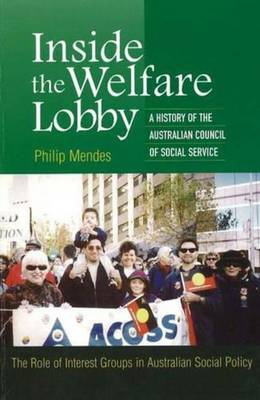
- Afhalen na 1 uur in een winkel met voorraad
- Gratis thuislevering in België vanaf € 30
- Ruim aanbod met 7 miljoen producten
- Afhalen na 1 uur in een winkel met voorraad
- Gratis thuislevering in België vanaf € 30
- Ruim aanbod met 7 miljoen producten
Zoeken
Inside the Welfare Lobby
A History of the Australian Council of Social Services, the Role of Inte
Philip Mendes
Paperback | Engels
€ 32,45
+ 64 punten
Omschrijving
The first study to comprehensively examine the role played by ACOSS in the Australian social policy debate; The implications of Australian welfare state debates and agendas for other advanced welfare states. The Australian welfare lobby group -- the Australian Council of Social Service (ACOSS) -- has played a central role in the welfare politics debate as the foremost defender of the Australian welfare state. ACOSS is widely recognised as one of the most important lobby groups in Australia, and enjoys regular access to the media and key policy makers in government and the bureaucracy. Relevant case studies and source material are used to draw attention to: The role that interest groups play in the formation of government policy agendas; The lobbying strategies used by welfare advocacy groups to influence welfare state outcomes; The relationship between the welfare sector and other key lobby groups and political parties; The impact of key contemporary influences such as neo-liberalism and economic globalisation which have arguably transformed the political context within which welfare advocacy groups operate.
Specificaties
Betrokkenen
- Auteur(s):
- Uitgeverij:
Inhoud
- Aantal bladzijden:
- 145
- Taal:
- Engels
Eigenschappen
- Productcode (EAN):
- 9781845191191
- Verschijningsdatum:
- 4/09/2006
- Uitvoering:
- Paperback
- Formaat:
- Trade paperback (VS)
- Afmetingen:
- 157 mm x 211 mm
- Gewicht:
- 226 g

Alleen bij Standaard Boekhandel
+ 64 punten op je klantenkaart van Standaard Boekhandel
Beoordelingen
We publiceren alleen reviews die voldoen aan de voorwaarden voor reviews. Bekijk onze voorwaarden voor reviews.











